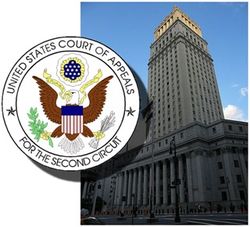November
2014
Second Circuit Affirms That Failure to Provide Timely Notice Bars Coverage
On October 2, 2014, the United States Court of Appeals for the Second Circuit affirmed the district court’s determination that a 58-day delay by the City of San Diego (the “City”) in providing notice of a pollution claim barred coverage under a pollution and remediation legal liability insurance policy (the “Policy”) issued to the City by Indian Harbor Insurance Company (the “Insurer”). Indian Harbor Ins. Co. v. San Diego, 13-4244-cv (2d Cir. Oct. 2, 2014).
The Policy at issue required the City to notify the Insurer “as soon as practicable” about any liability claims relating to “pollution conditions.” After receiving notification of three claims, including one where the City waited fifty-eight (58) days, the Insurer filed for a declaratory judgment that it had no duty to indemnify. The City opposed, arguing that (1) the Insurer violated New York Ins. Law § 3420(a)(5), which bars liability insurers from denying claims under policies “issued or delivered” in New York, by reason of late notice, unless the insurer suffered prejudice, and (2) the three notifications were not late as a matter of law. The district court rejected the City’s arguments, and granted the Insurer’s motion for summary judgment.
On appeal, the Second Circuit agreed with the district court that § 3420(a)(5) did not apply to the Policy at issue because “no reasonable fact finder could conclude that the Policy was ‘issued’ in New York.” First, the Court found that the signature of the Insurer’s president appearing on the Policy was a pre-existing electronic signature, which was affixed to the Policy in Exton, Pennsylvania. Second, the Court noted that “[t]he Policy was created and mailed from the Pennsylvania office and all transmittal paperwork bore the Pennsylvania office’s letterhead.” Accordingly, the Court concluded that the Insurer was not statutorily required to demonstrate prejudice. Moreover, the Court found that, where § 3420(a)(5) does not apply, courts are left to apply New York common law, which does not require an insurer to demonstrate prejudice before denying coverage based on a timely notice provision in an insurance policy.
Finally, with respect to whether the notifications could be considered late as a matter of law, the Court noted that “[t]he test for determining whether the notice provision has been triggered is whether the circumstances known to the insured at the time would have suggested to a reasonable person the possibility of a claim,” (citations omitted) and that, under this test, New York courts have routinely held delays of one or two months unreasonable. Here, the City “adduced no evidence to demonstrate that its 58-day delay was reasonable.” As a result, the Court concluded that “the district court correctly held that the City’s 58-day delay . . . was unreasonable as a matter of law.”
Click here to read the Second Circuit’s decision in its entirety.



